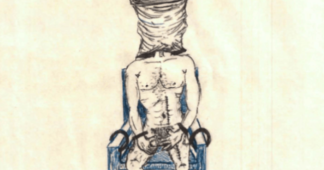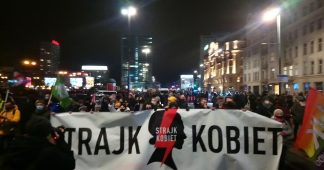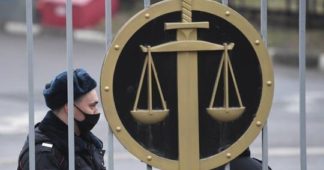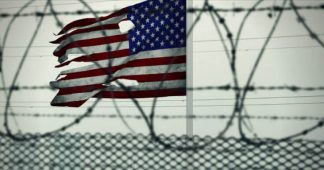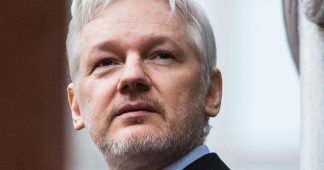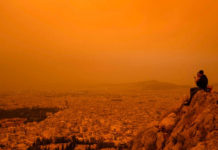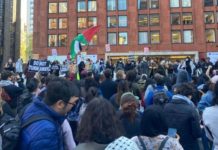Decision blocks efforts by Guantanamo detainee to seek information about his torture at a black site widely known to have been in Poland
Mar 3, 2022
The US Supreme Court on Thursday ruled that the location of a CIA black site is a state secret, shutting out efforts by a Guantanamo detainee to obtain information from two former CIA contractors involved in torturing him.
Abu Zubaydah, who has been detained at Guantanamo Bay since 2006, was seeking to subpoena the contractors, James Mitchell and Bruce Jessen, in connection with a Polish criminal investigation prompted by a determination by the European Court of Human Rights that he had been tortured in 2002 and 2003 at secret sites operated by the CIA, including one in Poland.
A six to three opinion of America’s highest court said the main issue was whether the information Abu Zubaydah was seeking would force the US to confirm the location of the black site, even though it is widely known to have been in Poland.
Justice Stephen Breyer wrote that while the black site’s location has already been acknowledged by the ECHR and a former president of Poland, the confirmation of the location of the torture by the US government would leave “virtually no doubt as to the veracity of the information” and would ultimately “damage the CIA’s clandestine relationships with foreign authorities”.
In 2010, Zubaydah filed a criminal complaint in Poland seeking to hold Polish officials accountable for their alleged complicity in his detention and torture at a black site.
But when Polish prosecutors separately sought information from the US about the operations in Poland, Washington refused on grounds of national security.
Zubaydah’s lawyer then went to the US court system seeking testimony from the two CIA contractors, which the US government sought to block.
A federal judge had originally granted the government’s motion to block Abu Zubaydah’s subpoena, but a federal appeals court ruled in 2019 that some of the information could be unclassified.
“In order to be a ‘state secret’, a fact must first be a ‘secret’,” Judge Richard Paez wrote in his opinion.
However, the Supreme Court’s ruling, which cannot be appealed further, effectively shuts the door on Abu Zubaydah’s case.
‘Embarrassment for past deeds’
Abu Zubaydah, whose given name is Zayn al-Abidin Muhammad Husayn, is a Palestinian who was born and raised in Saudi Arabia. He was captured in a US-Pakistani raid in Faisalabad, Pakistan, in 2002.
At the time of his capture, the US publicly claimed that he was a top-level al-Qaeda leader with direct connections to Osama bin Laden. But in 2006, the CIA conceded that Abu Zubaydah was never a senior member of al-Qaeda – because he was never a member of the armed group to begin with.
According to the Senate Intelligence Committee report, he was interrogated using techniques that amounted to torture, including being waterboarded 83 times in one month, hung naked from a ceiling, and deprived of sleep for 11 straight days.
In a dissenting opinion, Supreme Court Justices Neil Gorsuch and Sonia Sotomayor argued against the claim that the black site’s location was a state secret, saying that the US government was seeking to dismiss the case in order to avoid “further embarrassment for past misdeeds”.
“The facts are hard to face,” Gorsuch wrote. “We know already that our government treated Zubaydah brutally – more than 80 waterboarding sessions, hundreds of hours of live burial and what it calls ‘rectal rehydration.’ Further evidence along the same lines may lie in the government’s vaults. But as embarrassing as these facts may be, there is no state secret here.”
“This court’s duty is to the rule of law and the search for truth,” wrote Justice Gorsuch, who had defended the Bush administration’s detention policies as a Justice Department official. “We should not let shame obscure our vision.”
“Doubtless, these disclosures may have done damage to national security interests. But nothing in the record of this case suggests that requiring the government to acknowledge what the world already knows to be true would invite a reasonable danger of additional harm to national security.”
Published at www.middleeasteye.net
We remind our readers that publication of articles on our site does not mean that we agree with what is written. Our policy is to publish anything which we consider of interest, so as to assist our readers in forming their opinions. Sometimes we even publish articles with which we totally disagree, since we believe it is important for our readers to be informed on as wide a spectrum of views as possible.
